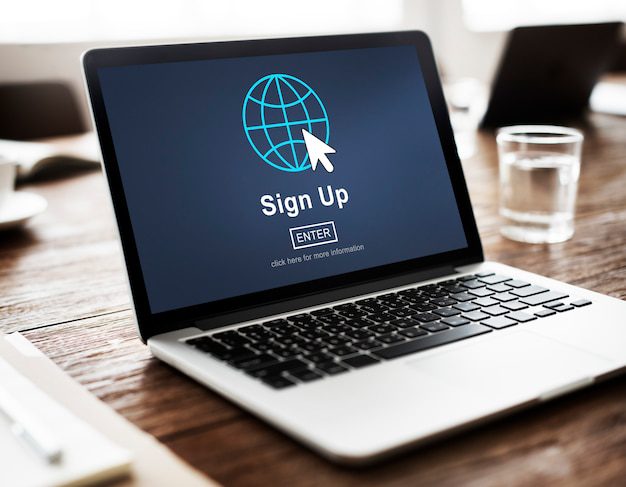Is it risky to use VPN?
A Brief Introduction to VPNs
In today’s digital age, where cyber threats are becoming increasingly prevalent, many individuals and businesses have turned to Virtual Private Networks (VPNs) to protect their online activities. A VPN creates a secure connection between your device and the internet by encrypting your data and routing it through a remote server. This technology not only enhances your privacy but also allows you to bypass geo-restrictions and access content that might otherwise be unavailable in your location.
The Benefits of Using a VPN
Enhanced Security: One of the primary reasons why people use VPNs is to bolster their online security. By encrypting your internet traffic, VPNs make it virtually impossible for hackers or third parties to intercept and decipher your personal information.
Privacy Protection: Another crucial advantage of using a VPN is the protection it offers for your privacy. By masking your IP address and hiding your online activities from your internet service provider (ISP), VPNs ensure that your browsing history remains confidential.
Geolocation Bypass: VPNs can also be an excellent tool for accessing geo-restricted content. Whether you want to watch a particular TV show or stream sports events that are only available in certain countries, a VPN can enable you to bypass these limitations and enjoy the content you desire.
The Potential Risks
While VPNs are generally considered safe and reliable, it is essential to acknowledge that no security measure is infallible. It is important to understand the potential risks associated with using VPNs:
Trustworthiness of the Provider: When using a VPN, you essentially entrust your online activities to the VPN provider. Therefore, it is crucial to choose a reputable and trustworthy provider known for their commitment to privacy and security.
Malicious VPN Providers: Not all VPN providers have the best intentions. Some unscrupulous providers may log your internet activities or sell your data to third parties. Therefore, it is vital to thoroughly research and choose a reliable VPN provider with a strong track record in privacy protection.
Do I need a VPN for Firestick?
Firestick has revolutionized the way we consume media content, providing users with access to a wide range of streaming services. However, as with any internet-connected device, there are security and privacy concerns that arise when using Firestick. This has led many people to wonder whether they need a VPN (Virtual Private Network) for their Firestick.
What is a VPN?
A VPN is a service that encrypts your internet connection, providing you with online privacy and security. It creates a secure tunnel between your device and the internet, ensuring that all your online activities are safe from prying eyes.
The Benefits of Using a VPN for Firestick:
1. Access Geo-restricted Content: With a VPN, you can bypass geo-restrictions and access content that may be restricted in your country. This means you can enjoy a wider range of movies, TV shows, and other streaming services on your Firestick.
2. Enhanced Online Security: Using a VPN on your Firestick ensures that your internet connection is encrypted, protecting your personal and financial information from hackers and cybercriminals.
“A VPN helps protect your privacy and secures your data, especially when using public Wi-Fi networks.”
3. Anonymity and Privacy: A VPN masks your IP address, making it difficult for anyone to track your online activities. This provides an added layer of privacy when using Firestick.
4. Prevent ISP Throttling: Internet Service Providers (ISPs) sometimes throttle connection speeds for streaming services. By using a VPN, you can bypass such restrictions and enjoy seamless streaming on your Firestick.
Choosing the Right VPN for Firestick:
When selecting a VPN for Firestick, there are a few key factors to consider:
- Fast Speeds: Opt for a VPN that offers fast and stable speeds to ensure smooth streaming on your Firestick.
- Wide Server Network: Look for a VPN with a wide server network that includes servers in the countries you want to access content from.
- User-Friendly Interface: A user-friendly VPN app makes it easier to connect to servers and manage your VPN settings on Firestick.
Remember, using a VPN for Firestick is not mandatory, but it can greatly enhance your streaming experience while providing added security and privacy. Consider your needs and weigh the benefits before deciding if a VPN is right for you.
Can VPN Steal Passwords?
In today’s digital age, online security is paramount. With cyber threats constantly evolving, many people turn to Virtual Private Networks (VPNs) as a means to protect their sensitive information. However, there is a common concern among internet users: can VPNs steal passwords?
The short answer is no, VPNs cannot steal passwords. VPNs are designed to enhance security and privacy by creating an encrypted tunnel between your device and the internet. This encryption prevents anyone, including the VPN provider, from intercepting or accessing your data.
When using a VPN, your password remains secure and encrypted. The VPN server acts as an intermediary between your device and the websites or services you access, ensuring that your login credentials are protected. Furthermore, reputable VPN providers have strict privacy policies in place, committing to not logging or storing any user information, including passwords.
It is important, however, to choose a trusted VPN provider. Some free VPN services may not offer the same level of security as paid options, and there have been instances where certain VPNs were found to log user data or engage in other questionable practices. Researching and selecting a reputable VPN provider is crucial for maintaining online security.
While VPNs themselves do not steal passwords, it is essential to remain vigilant when browsing online. Phishing attacks, malware, and other malicious activities can still put your passwords at risk. Always ensure you are using secure websites (https://) when entering sensitive information and be cautious of suspicious links or emails.
“Using a VPN is an effective measure to protect your online privacy and secure your data. However, it is crucial to choose a trustworthy VPN provider and practice safe browsing habits to fully protect your passwords and personal information.” – Cybersecurity Expert
In conclusion, while VPNs themselves cannot steal passwords, they play an important role in enhancing online security and privacy. By encrypting your connection and hiding your IP address, VPNs provide an additional layer of protection. Remember to choose a reliable VPN provider and remain vigilant when entering sensitive information online.
Is a bad VPN worse than no VPN?
The Importance of Choosing a Good VPN
When it comes to online security and privacy, many people rely on Virtual Private Networks (VPNs) to protect their data and maintain anonymity. However, not all VPNs are created equal, and using a bad VPN can actually be worse than not using one at all.
The Risks of Using a Bad VPN
Using a poorly designed or unreliable VPN can expose you to several risks. Firstly, a bad VPN may not adequately encrypt your internet traffic, leaving your personal information vulnerable to hackers and surveillance. Secondly, some VPNs keep logs of your activity, defeating the purpose of using a VPN for privacy. Lastly, a bad VPN may have slow connection speeds, which can negatively impact your browsing experience.
Quote: “Using a bad VPN is like having a lock on your front door that anyone can pick.” – Anonymous
No VPN vs. Bad VPN
While both options have their drawbacks, it is generally recommended to opt for no VPN over a bad VPN. When you don’t use a VPN, your internet traffic is exposed to your Internet Service Provider (ISP) and potentially other third parties. However, using a bad VPN gives you a false sense of security while increasing the risks mentioned earlier.
Tips for Choosing a Reliable VPN
- Research reputable VPN providers.
- Look for VPNs with strong encryption protocols.
- Ensure the VPN has a strict no-logs policy.
- Consider the server locations offered by the VPN.
- Read customer reviews and testimonials.
How do I stop Wi-Fi owner from seeing my history?
If you are concerned about your online privacy and want to prevent the owner of the Wi-Fi network you are connected to from seeing your browsing history, there are several steps you can take to protect your data. While it is not possible to completely hide your internet activity, following these measures can enhance your privacy and make it harder for others to track your online behavior.
1. Use a Virtual Private Network (VPN)
A VPN encrypts your internet traffic and routes it through a secure server, making it difficult for anyone, including the Wi-Fi owner, to see what websites you visit. Choose a reliable VPN provider with servers in different locations for maximum anonymity.
2. Use Incognito Browsing
Most modern browsers offer an incognito or private browsing mode that does not save your browsing history, cookies, or form data. While this does not hide your online activity from the network owner entirely, it prevents your browser from storing any traces of your browsing session on the device you are using.
3. Clear Cookies and Cache Regularly
Clearing your browser’s cookies and cache removes temporary files and stored data, minimizing the chances of someone accessing your browsing history. You can typically find this option in your browser settings under privacy or history settings.
4. Use HTTPS and Secure Websites
When visiting websites, look out for “HTTPS” in the website URL, which indicates a secure connection. Avoid using websites without proper security measures, as they may expose your browsing activity. Additionally, consider installing a browser extension that forces HTTPS on all websites.
Remember, taking these steps can significantly enhance your privacy, but they are not foolproof measures. For complete anonymity, it is advisable to use a combination of these techniques and consider using devices and networks that you trust.
“Protecting your online privacy is crucial in today’s digital age. By implementing these measures, you can minimize the chances of others spying on your browsing activity.
Conclusion
When it comes to VPNs, it’s important to choose a reliable and trusted provider. A bad VPN can leave you more vulnerable than having no VPN at all. Take the time to research and select a VPN that prioritizes your privacy and security.



